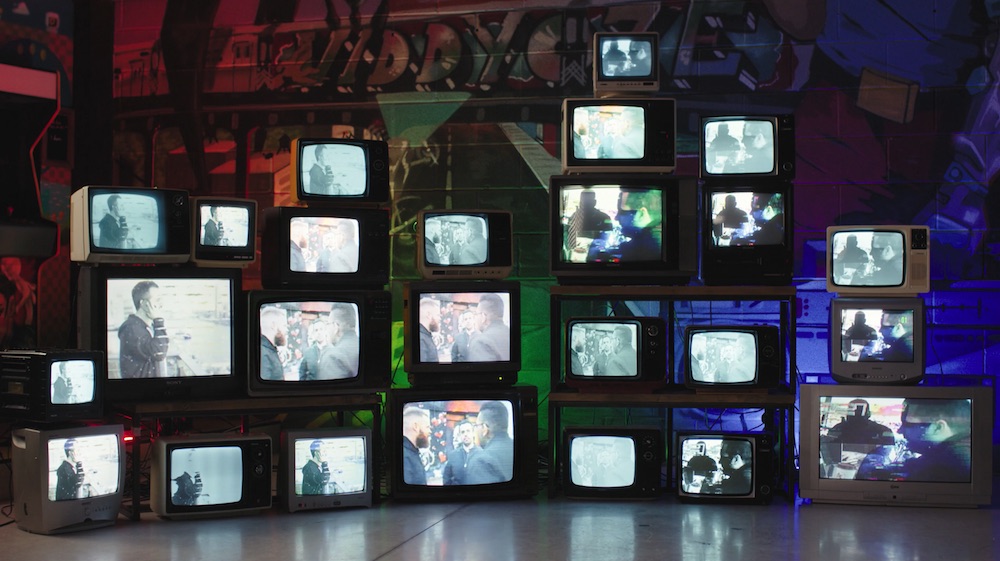02 Dec Celebrating Creativity: A Cinematographer & Creative Director with Bipolar
At Melodie, creativity lies at the heart of everything we do. We’re here to connect, support and inspire content creators the world over.
To celebrate creativity of all sorts, Melodie’s Selin Gunsur caught up with Dan Stoner, Senior Cinematographer and Creative Director at Viddyoze, to discuss about how being bipolar shapes his approach to filmmaking in a positive and creative way.
Meet Dan Stoner
Melodie: Hi Dan, so nice to talk to you today, thanks for making the time.
Dan: My pleasure Selin, it’s still early morning in the office, so this is a fun way to start my day.
M: Great! Let’s jump straight into it then… You mentioned before that you’re very open about being bipolar – to educate others so that people feel comfortable just being themselves. We’d love to contribute to this supportive and encouraging mission of yours by connecting you with our creative community. So, tell me, how does being bipolar positively impact on your approach to filmmaking?
D: Absolutely. I guess it gives me a lot of energy. It drives me to be a lot more creative than most, too, a lot more ideas-driven. I don’t hesitate to push boundaries, to think outside-the-box. And I’m constantly buzzing with ideas without trying too hard. I feel like that gives me the edge or has done in the past.
I don’t hesitate to push boundaries, to think outside-the-box. And I’m constantly buzzing with ideas without trying too hard.

M: Wow, it sounds like you’ve chosen a great career to make the most of your creativity. You said filmmaking and editing helps with being bipolar – can you elaborate on this?
D: Making films, and being creative more generally, allows me to have an outlet for my ideas – and that’s a huge release for me. I always have so many ideas rushing through my mind and filmmaking helps me ‘get rid of them’ in a positive and productive way. I get a massive kick out of filming and directing. Creating is my way of clearing my mind.
M: That’s amazing. I’ve seen some of your work. You have a very unique outlook on film and video creation – the creativity is hard to miss. How does being bipolar changes the way you think?
D: I think it allows me to think on a different level, a bit wider. There’s an element of visualisation beyond what most people have.
It allows me to think on a different level, a bit wider. There’s an element of visualisation beyond what most people have.
Actually, there are a lot of famous directors that are reportedly bipolar: Tim Burton, Woody Allen… who are all on another level in terms of visualisation.
M: Oh wow, I didn’t know that! Tim Burton films really do make you visualise things you couldn’t have imagined otherwise. Do you have an example of a creative idea of yours that you can share?
D: Oh, this is a hard one. Off the top of my head, I saw a vintage TV at an antique shop one evening, and I immediately had this idea to have a big stack of TVs as a background for the documentary I shot for Viddyoze. The team loved the idea and it turned out great – it built the tension that we needed to set the scene for the new launch. That idea came to me just from seeing a TV in a shop – that’s it. And I immediately had the whole vision in my head. I knew exactly how it was going to look and I put it in place.
M: I watched that documentary – it was so good. How do you find the process of actually bringing your creative ideas into reality?
D: Depends where I am. With films and videos, there is a lot more going than just the end-result. That’s what most people see, but it’s much more than that. There’s pre-production, the planning and development of ideas, pulling it all together. So, when I’m not given the flexibility to create, I can feel stifled. At Viddyoze, however, I’m given a lot of freedom to run with my crazy ideas – quite a lot of autonomy actually! As it’s a videos-led business, they understand and see the benefits of being unique and different, so everything becomes easier.
M: Agreed, diversity of ideas, backgrounds, personalities and cultures… it all helps to create an environment where creativity thrives, allows everyone to be comfortable in their own skin and voice their ideas.
Nowadays, an increasing number of high-profile individuals, including artists and creators, are more publicly open about their mental health – which is awesome to see. We really do hope that such openness will remove the stigma around having conditions like bipolar. What has been your experience around this in the industry, and is it changing at all?
D: This is where I’m lucky, I guess. I’m very upfront, open and honest about my condition – about the good and the bad. I haven’t really found it to have been that much of an issue … well, unless I’ve had a bad episode and it’s affected my ability to work (speaking past tense to be clear).
It’s as if everyone has been happy to benefit from my skills and creativity when I’ve been performing well, but as soon as I’ve hit a wall and become unwell – as a result of being bipolar – and, for example, needed hospital treatment, they’re suddenly afraid of being associated with someone like me.
This has happened at almost all my workplaces prior to Viddyoze, who are hands down the most understanding company I’ve been a part of. The Co-Founders themselves are very open about their mental health issues, which helps a lot.
M: That sounds like a tough experience, and I’m really glad to hear that you’ve found a place that’s understanding and as open as you are about mental health.
As a slight change of tack – you mentioned you make YouTube videos for Viddyoze’s channel – do you have any tips for Melodie’s YouTubers?
D: When I first got on camera – I spent 15 years on the other side – I was very nervous. I’m actually very shy and self-conscious, so it was rather scary. However, after I made about three or four videos, I started coming out my shell a little, and I really enjoy it now. So, practice … a lot!
M: And if you could give one piece of advice for content creators to help take their content to the next level – something that would make an ordinary video exceptional – what would it be?
D: I think my top tip would be to invest in some lights. Lenses would normally be my go-to answer, but lights – and learning how to light – will make the biggest difference to any video. Even if it’s only to brighten up someone’s face in a backlight shot.
Lights – and learning how to light – will make the biggest difference to any video. Even if it’s only to brighten up someone’s face in a backlight shot.
M: Fantastic tip. From your point of view, how do you think Viddyoze’s platform helps with the challenges of being creative, overcoming technical fears or reservations?
D: I know that when I was first starting out, having a platform like Viddyoze would have been massively beneficial in me being able to create more varied content or to a higher standard. I had to try and learn how to make text, animations, logos, etc, which was good for me but very time-consuming, and often the results weren’t great.
Having this platform at hand to produce higher standard content, it aids in your career. Gives you more time to focus on the other elements of the production. Being able to pick and choose really unique templates adds massive value to your content.
Also, one of the challenges of being creative is living up to your own expectations. Sometimes you have an idea, but you can’t fully get it out there. That’s why it’s cool to have a platform like Viddyoze. Maybe you’re creative but you don’t have the technical knowledge – it’s a good platform to help with that I think.
M: Definitely, ideas are key – tech and tools are only there to realise that creativity.
D: Exactly!
Viddyoze is a SaaS web-based 3D animation software that allows absolutely anybody, regardless of technical knowledge, to create stunning professional animations in just a few steps. Video animations made simple.


